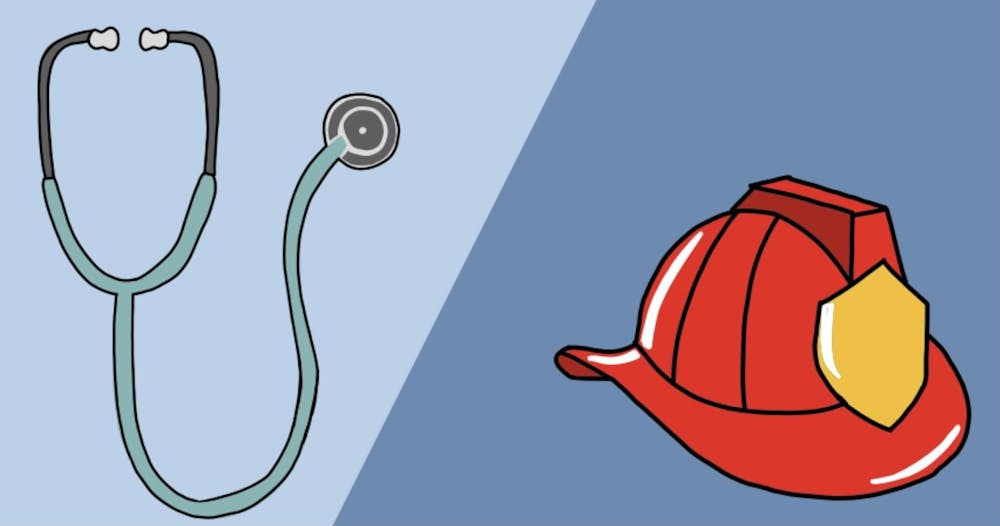The Virginia Film Festival hosted members of the “Grey’s Anatomy” and “Station 19” casts Sunday on Zoom to discuss the challenges of tackling heavy topics on television as part of its Beyond the Screen series. Panelists included Jason George, Kim Raver, Boris Kodjoe, Krista Vernoff and Kevin McKidd. The event was moderated by VAFF Program Manager Chandler Ferrebee.
“Grey’s Anatomy” fans have long applauded the show for its efforts to address relevant social and political issues in ways that remain thoughtful and entertaining. When the spinoff show “Station 19” premeried in 2018, audiences were happy to encounter the same spirit of change. When COVID-19 hit, most popular shows on television chose to leave the pandemic out of their storylines, but “Grey’s Anatomy” and “Station 19” made the decision to use their platforms to show the struggles of first responders fighting the virus.
According to showrunner Krista Vernoff, the writers of both shows were initially hesitant, but they ultimately agreed they had a responsibility to include the pandemic in the newest seasons. As the biggest medical drama in television history, “Grey’s Anatomy” had the perfect opportunity to help viewers see the toll the pandemic takes on the doctors, nurses and hospital workers on the frontlines.
“Our part is telling stories and bringing us together as one through storytelling,” said Raver, who plays Dr. Teddy Altman on “Grey’s Anatomy.”
When George Floyd was murdered in May 2020 and the country erupted in protest, Vernoff had another important decision to make. Both shows under her command famously strive for racial diversity. Given the number of Black characters on both casts, covering the pandemic but not police brutality would be conspicuous to the audience.
“We’ve locked ourselves squarely … in 2020, and so we’re not going to do one thing and not do another thing,” Vernoff said. “That would be racist. We would be a part of the problem. So then it became about how do we be a part of the solution in a way that feels authentic, and in a way that doesn’t add to pain?”
The result was two episodes tackling police brutality and the realities of being a Black first responder. On “Station 19,” characters gathered and watched the news coverage of George Floyd’s death, reflecting on the fear and grief they felt. The “Grey’s Anatomy” ensemble spent a full episode focusing on the protests in their city and the violence against Black protestors. Black characters contemplated their individual relationships with protesting for equality. Most memorably, the episode showed a traffic stop where one Black character was harassed by white police officers.
This was not the first time these characters spoke on race. In 2018, one “Grey’s Anatomy” episode told a story of a boy who was shot by the police trying to get into his own house through a window. At the end of the episode, Dr. Ben Warren, played by Class of 1994 alumnus Jason George, sat down with his wife to talk to his sons about police brutality.
According to the panelists, Vernoff structured these narratives around the perspectives of the Black cast members and their experiences with police brutality and race in America.
“The normalizing of Blackness is something I think we were able to touch on in the episode as it pertained to our experience with this murder,” said Kodjoe, who plays Robert Sullivan on “Station 19.” “It was super powerful. It forced people to change their mindset from being colorblind — which has been in the past an objective — to throwing it out the window and saying, ‘No, we don’t want to be colorblind anymore because that doesn’t serve us. We want to be color conscious.’”
This past year, both shows also tackled mental health. Between tragedy and isolation in the COVID-19 world, we all have to work harder than before to maintain our mental health. Watching some of the best-loved characters on television grapple with the same problems is both validating and achingly realistic. While there is something to be said for escapist consumption of media, ignoring the state of the world at times feels shallow and insincere. Shows like “Grey’s Anatomy” and “Station 19” provide an outlet for the immense grief and uncertainty we all feel.
The overwhelming message conveyed by the panel was that filmmakers and creatives can build quality, inspiring and entertaining content while still doing their part to contribute to vital social change.







